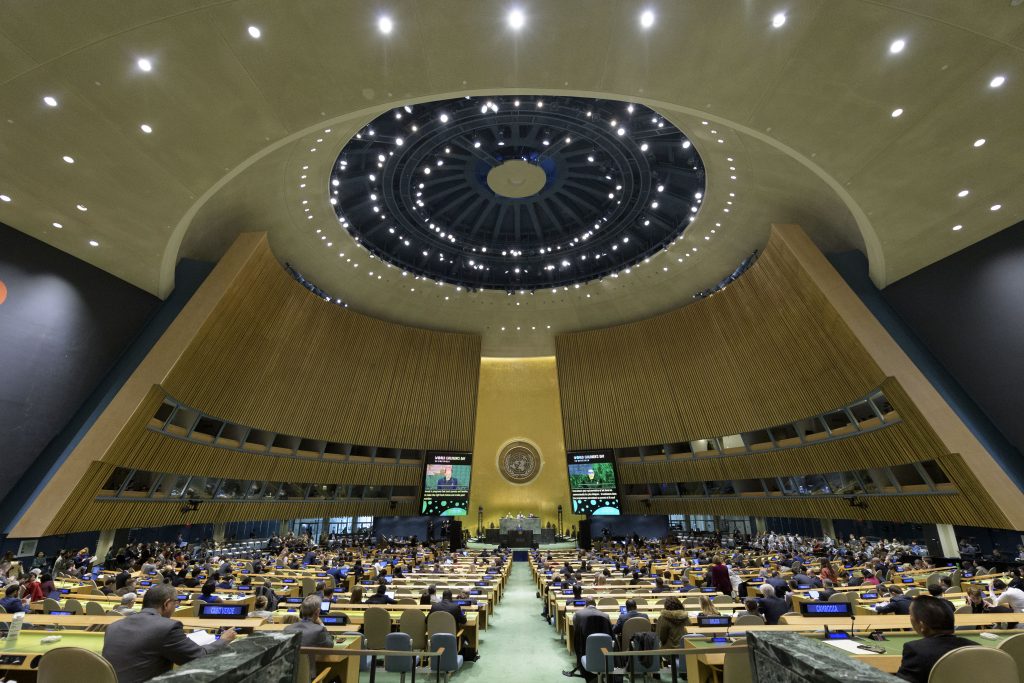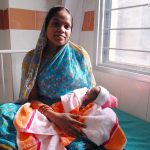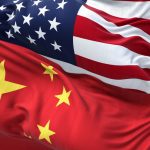As we continue our isolation at home, haunted by messages of vulnerability and gloom, we ask ourselves: How will this end? What will the future hold for us, and for our nation and the world?
Two opposite pathways are before us. On the one hand, we see an alarming trend toward greater nativism and authoritarianism, the closing of borders and tighter restrictions on travel and immigration, the scapegoating of China and the World Health Organization, and a disregard for scientific findings.
COVID-19 ‘knows no borders.’
At the same time, however, we see unprecedented international cooperation among technicians and scientists in multiple countries as they share data and findings in the search for a coronavirus vaccine and more effective testing and treatment.
We also see increasing recognition of global interdependence and calls for greater internationalism. As Pope Francis and others have observed, COVID-19 “knows no borders” and can only be contained through coordinated global action. UN Secretary- General António Gutierrez has urged world leaders to come together in response and act in greater solidarity with those hardest hit by the crisis, especially low-income workers, small businesses and the world’s poorest and most vulnerable populations.
Global leaders weigh in
Former US Ambassador to the UN Samantha Power argues that the current go-it-alone approach of the White House will contribute to “a catastrophic loss of life” in the world’s poorest nations and will prolong the crisis in the United States as well. The US is inextricably linked to the rest of the world through family ties, travel and global trade and supply chains. The “weakest links in the chain will impede our own ability to stem the contagion,” she writes. Power calls on Washington to exert leadership through the UN and the World Health Organization, and to put aside differences with Beijing in mobilizing global action against the pandemic.
Perhaps our current experience of mutual global vulnerability will lead to greater political support for international cooperation.
Former Soviet president Mikhail Gorbachev proposes convening an emergency special session of the UN General Assembly, after the current crisis passes, to revise the global agenda for peace and development and achieve global cuts in military spending. Gorbachev advocates a human security approach, which emphasizes civilian protection and seeks to address the full range of threats to human dignity.
The former British Chancellor of the Exchequer Gordon Brown and former US Treasury Secretary Lawrence Summers call on international financial institutions—the International Monetary Fund, World Bank and regional development banks—to expand lending for developing nations and the poor. Brown and Summers warn that if the disease is not contained in the developing world’s major cities and overcrowded slums, “it could come back — in second, third and fourth waves—to haunt every part of the world.” They propose an expansion of the Special Drawing Right to additional nations and urge major creditors, including China, to waive or postpone international debt payments.
Previous experiences of acute global danger have led to new international institutions.
My hope is that these and other voices of sanity will be heard, if not by the obdurate occupant of the White House, by other political leaders in Washington, and by people and leaders in other countries. Perhaps our current experience of mutual global vulnerability will lead to greater political support for international cooperation, and awareness of the need for stronger public health systems and improved structures of governance for more effective and equitable responses to future pandemics.
Previous experiences of acute global danger have led to new international institutions. World War II led to creation of the UN and the Bretton Woods system; the end of the Cold War to a more active UN Security Council and creation of the Organization for Security and Co-operation in Europe; 9/11 to the rise of greater UN and international counterterrorism cooperation.*
Can we envision a post-COVID-19 shift toward improved global governance? A rebirth of internationalism to strengthen our defenses against pandemics, and to protect the dignity and development needs of all people, especially the most vulnerable?
Rethinking human security
An important step toward that end would be to forge a new human security strategy. Genuine security goes beyond the defense of states to the protection of communities, families and individuals. This is a concept fully compatible with the principle of integral human development, which places the dignity of the human person at the center of political and social analysis. The most urgent threats to life and freedom today are not military but biological, ecological and economic. COVID-19 is a more imminent and dangerous threat to our survival and well-being than any imagined aggression from China or Russia.
This is not a plea for pacifism or a denial of the need for adequate national defense and police forces. It is a request for realism in understanding the sources of our insecurity. The threats we face today cannot be met by building more bombers or nuclear weapons, or by enlarging already bloated military budgets. Let us devote our resources instead to the development of cooperative global health systems and international programs for greater economic and social equality.
A global paradigm shift of this magnitude will not be possible without a vast mobilization of public opinion, and a major push from civil society. Fortunately, there are already major public figures pushing for the new direction. As we look to the future, let us echo their calls for internationalism and generate a global conversation on strategies for achieving a new era of cooperative security and protection from disease.
*I am indebted to former Kroc Institute professor Peter Wallensteen for these observations.
David Cortright is director of policy studies at the Kroc Institute for International Peace Studies and director of the Keough School’s Global Policy Initiative.
This article is the sixth in a series of blog posts published by the Keough School of Global Affairs. Dignity and Development provides in-depth analysis of global challenges through the lens of integral human development.



